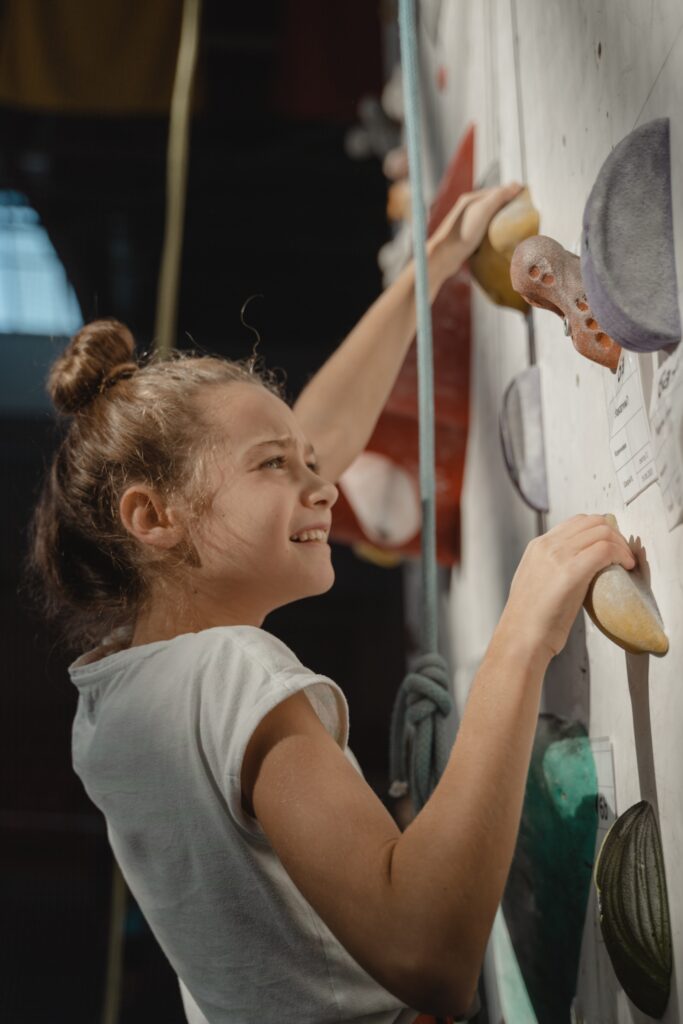9 Things To Do When You Start Overthinking

If you have spent more time thinking about a problem and less time trying to solve it, be assured that you are not the only one. Many people overthink, but it doesn’t truly become a problem until it starts affecting their daily life.
I struggle with this too and I have experienced times in which it has kept me on a loop of not only negative thoughts but also negative emotions that don’t let me do anything else. It is always hard to get out and shake off those feelings but it’s not impossible.
Inspired by the YouTube channel, Positive Seed, and my own experiences as an overthinker, here are some things you can do to put a halt to your overthinking.
A reminder that this article is not meant to diagnose or treat anything. This article is for educational purposes only. If you need help or advice please contact a mental health professional.
Now, here are 9 things to do when you start overthinking.
1. Ask, Is this rational?
When overthinking it is easy to go from thought to thought or idea to idea, changing and embellishing them based on our emotions or outside influences. Because of this, it often happens that a certain scenario in our heads gets so embellished that it enters the realm of the irrational even though we feel it could be true.
It is especially so when the person is someone who believes everything is possible. This belief will put more weight on that imaginary scenario. In this case, we have to remind ourselves that while anything is possible not everything is probable.
With that said, when you see yourself going down the dark rabbit hole that overthinking takes you into, ask yourself if that situation is truly probable with what you know of the people and places involved.
The probability of something happening is determined by whether or not the right circumstances are created for it to happen. If it’s not, it’s most likely an irrational thought that is fueling your worry and anxiety.
2. Journal

Do you write your thoughts in a notebook? If you do, you have probably noticed how much better you feel after you have written down your problems. Journaling helps us get perspective on situations in which we have been solely acting emotionally.
The act of writing forces us to think and analyze what we write, hence it forces us to review the events that either bother us or enlighten us. Doing this gives us a new way of looking at things, and understandings that we hadn’t had before when we were deep in the event.
Mental health professionals have also noticed, although cannot explain, how writing things down relieves and even frees us from the emotional burdens that we may have been carrying all day. It is believed that this is because the mind now feels comfortable to let go of that thought or idea because it is written down and will not be forgotten.
3. Will it matter later on?
Will this thing you are worried about have any meaning an hour from now, a day from now, months from now? Sometimes when we overthink, we feel as if this problem or thought will envelope all our time and energy. Generally, though, when we take a step back to look at the problem as a whole we realize that this is not the case.
That thing you said at the end of a meeting that you thought was weird and you were worried that people were going to notice or feel bad about, they probably didn’t even think anything of it and forgot about it. That thing you did or said five years ago, do you really think that other person is still thinking about that or living their life?
In most cases, what we overthink today will not matter later or was never really on other people’s radar just our own. Knowing this, why spend so much energy and time thinking about it? You have better, more important things to do than feel anxious about whatever it is that you’re overthinking.
4. Strive for progress

Do you find yourself overthinking every little detail about a project that you’re working on? A lot of overthinkers are also perfectionists which leads to a lot of doubting and running around in circles with different ideas to make the original project better.
This sometimes leads to getting stuck in one level or aspect of a project or leaving the project completely due to not getting it exactly where you want it to be. Overthinking in combination with perfectionism can cause projects to be abandoned and opportunities to go to waste.
It can become a repeating pattern that can lead you to feel hopeless and useless upon seeing all of your unfinished projects. Striving for perfection will only lead to feelings of failure.
For this reason, it is better to concentrate on progress instead of perfectionism. With progress, you make the project better little by little. You do not obsess over every little detail because there is no need at the moment. You just do things slowly, with attention, and worrying about the now not the future, or what everyone else thinks.
5. Get organized
Much of overthinking comes from not knowing what the next step is. You start thinking and questioning if you got everything you needed to, done. You start questioning if you forgot something, and worrying that you did. Then worrying about what would happen if you indeed forgot something.
Getting organized will put things into perspective and keep the important things in front of you. Creating lists can help you focus on what you have written down instead of letting your mind have free range to roam all over the place.
Because your focus is now on only a few things that you can do at the moment, you end up doing most of them much quicker than if you had spent an hour overthinking about something.
6. The present is a present

When you concentrate on either the past or the future, you put worry and added stress into your system. You also waste the time that could be used to do make a better life for yourself, creating scenarios in your head that most likely will never happen.
Most importantly, when you spend your time overthinking you miss out on the things that are right in front of you. For example, imagine that you are visiting a loved one. When we visit loved ones all we want to do is spend time with them, enjoy their company.
But, if we instead spend that time worrying and thinking about other things we end up not listening to that other person talk, not enjoying their presence, not being grounded, and sharing in their emotions. Intimacy becomes hard which makes relating to them difficult as well.
The present is a present, it is fleeting and hard to catch if we are not paying attention. Although it takes practice, especially for people to tend to overthink, it pays off to learn how to be present in mind, body, and heart as you create better connections that way.
7. Practice gratitude and make a list of your accomplishments
A good way to start practicing presence is to make gratitude lists or accomplishment lists, or both. Practicing gratitude focuses your attention on everything that you feel thankful for, while also giving you some positive energy that slowly builds up to joy.
When you practice gratitude you train your mind to find what to be grateful for every day and to appreciate what you have. Doing this also trains your mind to focus and be more present in order to find the little things to be grateful for.
Writing down your accomplishments helps you see how far you have come, and gives you a sense of pride and accomplishment. Which helps fuel your desire to keep working and bettering yourself.
8. Movement

Movement such as dancing forces you to get out of your head and into your body and heart. You have to focus on what your body is doing in order to get the moves right. As well as feel the music and rhythm.
Moving the body takes you from a mental space, into the tangible where you have no choice but to be present in order not to miss anything. It also helps you release stress and any other negative emotions that your body is holding. After a good workout, you feel lifted and able to focus better.
9. Meditation
Do you meditate? There are different types of meditation out there that concentrate on specific things. But the two basic reasons people meditate are to focus and to learn how to keep intrusive and negative thoughts out of their minds.
Depending on the teacher, you will find that some people tell that it is important to begin again until you can achieve a completely empty mind during a session. While others will tell you that it is fine if you get distracted as long as you keep practicing shifting your focus back to what you were concentrating on.
It doesn’t matter which way you do it, because all ways help you train your mind to focus on the present, and eventually, reduce or even stop overthinking.
Overthinking doesn’t help anyone, instead, it might be holding you back. Try working on staying grounded and present one step at a time and you will gradually see improvement.
Do you practice any of these practices on this list? Did we miss any? Let us know in the comments. Don’t forget to check out our YouTube channel for more interesting topics like this one. Thank you for reading.




Responses